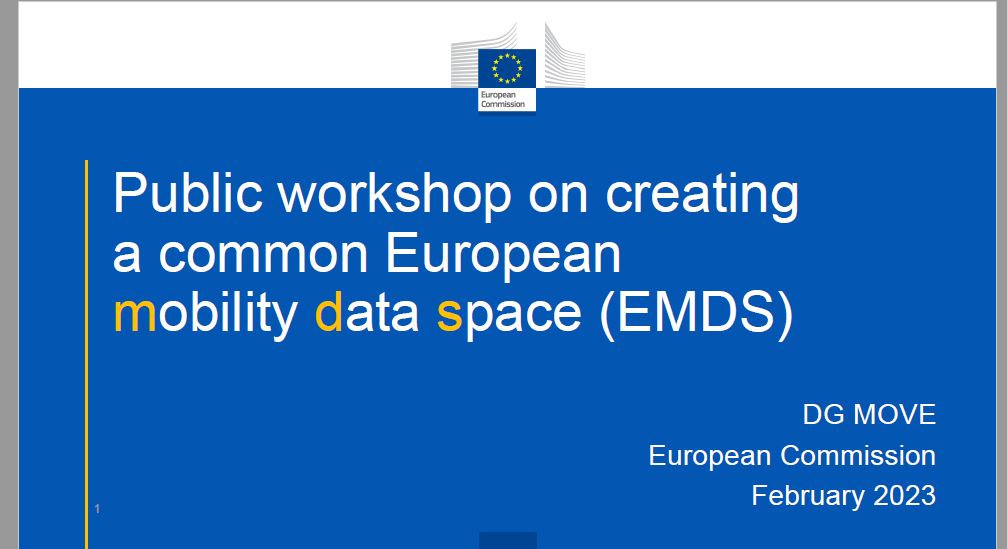Brussels |16 February 2023
On 16 February, the European Commission Directorate for Mobility and Transport organised a workshop on the creation of a European Mobility Space. The initiative is at the crossroads between two other EU strategies: the data strategy and the Sustainable and Smart Mobility Strategy (SSMS). The EU mobility data space aims at facilitating data access and sharing for more efficient and sustainable transport.
During the workshop the European Commission representative detailed the objectives of the initiatives:
- Identify crucial data and increase their availability to support services considered essential across the EU’s territory, covering themes from sustainability to multimodality.s
- Help users in the discovery of available data sources by providing tools for the user to understand the data quality and related access conditions.
- Facilitate data access and reuse through the modal and cross-modal harmonization of sharing conditions in a fair, transparent, proportionate, and non-discriminatory manner.
- Enable technical, organisational, and legal interoperability for data access, reuse and data sharing between public and private actors
- Optimise data collection and reduce administrative burden by identifying gaps and overlaps in existing data collection arrangements and making recommendations for respective adjustments in sectoral legislation
- Facilitate interoperability with other common European data spaces and allow data sharing and re use among those in line with new and emerging EU data-related legislation.
As mentioned before, the European Mobility data will complement and complete other existing initiatives but it won’t be a piece of hardware infrastructure nor a database.
The Common European mobility data space will be a framework for interlinking and federating many different transport data ecosystems that are rather heterogeneous and often difficult to discover or access.
Few examples were given of the added value the initiative will provide. To mention one: the Passenger & freight multimodality can be boosted by providing a framework on data sharing conditions and through the integration of information (e.g. real-time schedules, disruptions) and access to tickets in all transport modes.
In the second part of the workshop, Sebastian Pretzsch – Research Group Manager Data Systems and Travel Assistance at Fraunhofer Institute for Transportation and Infrastructure Systems- gave an overview of the complementary EU-funded project PrepDSpace4Mobility: this project aims at creating an inventory of mobility and transport data ecosystems and build blocks for a future common European mobility data space.
Finally, The European Commission representatives gave a few indications regarding the timeline:
- EC Communication on the creation of EMDS scheduled for the second quarter of 2023
- CEF Technical assistance study (planned for 2023) followed by deployment (TBC)
- PrepDSpace4Mobility: Completion end of Sept 2023
- DIGITAL deployment action: Planned for third or fourth quarter 2023 (TBC)
-
Safer, Smarter Roads Discussed at the 25th Belgian Road Congress
October 10, 2025 -
ERF calls for Smarter, Safer Road Work Zones at Bologna Forum
October 9, 2025


